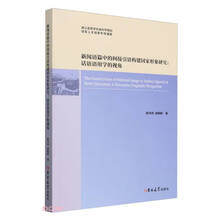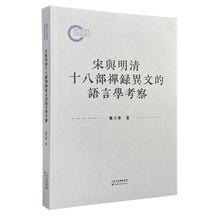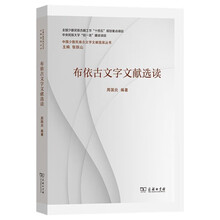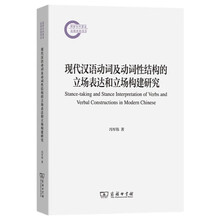Preface
Chapter One Introduction
1.1 What Are Formulaic Speech Events
1.2 Man's Living within Formulaic Speech Events
1.2.1 Language: The Last Homestead of Human Beings
1.2.2 Man's Having to Live within FSEs
1.2.3 Relevant Issues in Qian (2005) Left for Further Investigation
1.2.4 Insufficient Study on FSEs
1.3 The Objectives and Methodology of the Project
1.3.1 The Research Objectives and Questions
1.3.2 The Research Methodology
1.4 The Organization of the Book
Chapter Two The Inside-Out vs. the Outside-In Approaches to Repetive Language Use
2.1 Introduction
2.2 The Study of Formulaic Expressions in General
2.2.1 The Formulaic Approach: One of the Two Co-existing Language Processing Strategies
2.2.2 Some Major Agreed-upon Findings and Problems
2.3 The Study of SBUs
2.3.1 Coulmas's Study of Routine Formulae
2.3.2 Kecskes's Study of SBUs
2.4 The Pragmatic Perspective
2.4.1 The Event-oriented View of Language Use
2.4.2 Language Use as Negotiable Dynamic Choice-making Processes
2.5 Summary
Chapter Three Categorizing Formulaic Speech Events
3.1 Introduction
3.2 Speech Events
3.2.1 An Operational Definition of Speech Event
3.2.2 The Embedding of Speech Events
3.2.3 Recurrence of Speech Events
3.2.4 The Problem of Naming Speech Events
3.3 FSEs
3.3.1 FSEs in a Strict Sense
3.3.2 FSEs in a Broad Sense
3.3.3 The Continuum ofFSEs
3.3.4 The Inclination of Formulaicity
3.3.5 Formulaic Speech Acts and FSEs
3.3.6 Formulaicity and Variability
3.3.7 Choice-making in FSEs
3.4 FSEs andNon-FSEs.
3.5 Summary: FSEs as the Basic Forms of Life
Chapter Four The Emergence and Functions of Formulaic Speech
Events
4.1 Introduction
4.2 Factors That Cause the Emergence of FSEs
4.2.1 The Human Cognitive Inclination:Inductive Thinking
4.2.2 The Socio-cultural Factors
4.3 Functions of FSEs
4.3.1 Specific Functions
4.3.2 General Functions
4.3.3 FSEs as Strategies:Man's Being in FSEs
4.4 Summary
Chapter Five The Pragmatic Mechanism of FSEs:A Game-Theoretic Framework
5.1 Introduction
5.2 Game Theory and Pragmatics
5.2.1 The Essence of Game Theory
5.2.2 The Application of Game Theory in Pragmatics
5.3 FSEs as Repeated Positive-sum Games of Perfect Information
5.3.1 The Gains and Losses in FSEs
5.3.2 FSEs as Repeated Dynamic Games
5.3.3 The Rationality of Agents in FSEs
5.4 The Pragmatic Mechanism of FSEs
5.4.1 Choice Resources in FSEs
5.4.2 The Constraint of Context
5.4.3 The Constraint of Goals
5.4.4 The Guidance of Expectation
5.5 The Functioning of the Pragmatic Mechanism of FSEs:Case Studies
5.5.1 The Wedding Ceremony
5.5.2 Bargaining Events on the Cattle Market
5.6 Summary
Chapter Six A Step Forwards and the Questions Begged
6.1 The Inclination of Formulaicity in Verbal Communication
6.2 Limitations of the Research and Topics for Further Studies
References
Appendices
Appendix I The Moderator's Performances at News Conferences
Appendix II A Full Sample of Christian Wedding Format
Appendix III Five Christian Weddings
A.The Stacy-Dave Case
B.The Eva-Mike Case
C.The Lauren-Aran Case
D.The Wendy-Donovan Case
E.The Deidre-Bred Case
Appendix IV Bargaining Events on Chinese Cattle Markets
Case A: Youtian Cattle Market (1)
Case B: Youtian Cattle Market (7)
展开










